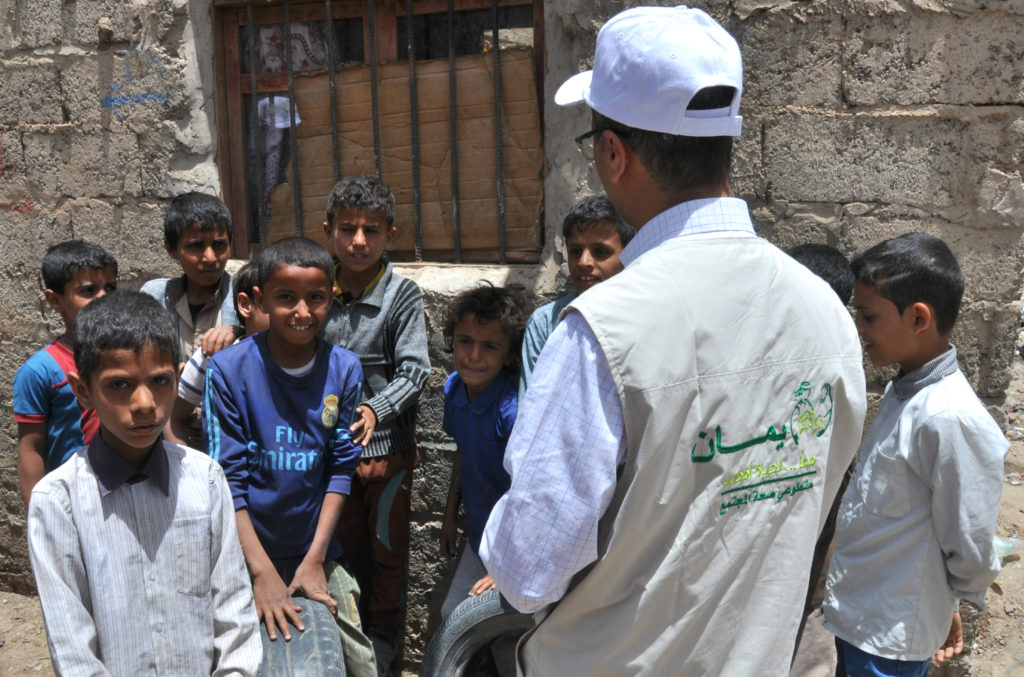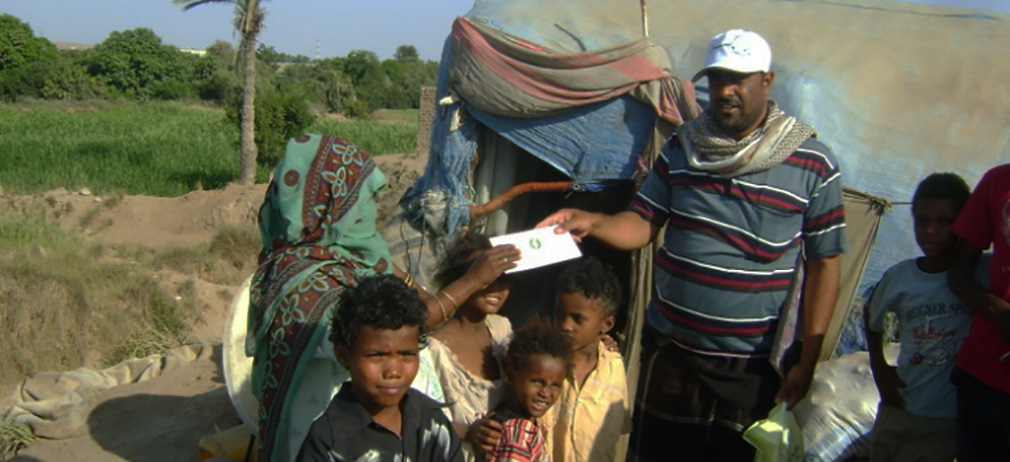Together with Yamaan Foundation, our Yemeni partner organisation, Cordaid has started a three year health care project in Yemen. This comes on top of the humanitarian food and shelter support we started providing in 2018, also in collaboration with Yamaan Foundation.

The conflict in Yemen, which started in 2015, caused severe food insecurity in large parts of the country and pushed Western parts of the country to the brink of famine. Many basic services, like health care, are no longer available.
To address urgent needs, Cordaid’s humanitarian team and our local partner Yamaan Foundation started providing food and shelter support in 2018. With our recently launched healthcare response, which is implemented in the region of Dhamar, thousands of people will have better access to medical care, ranging from vaccinations to safe deliveries.
Access to basic health care
At the moment, half of Yemen’s health care facilities are dysfunctional due to the conflict. Basic medical items are out of stock and health care staff have not been paid for months.
“We have to ensure that people get access to the care they need to survive.”
Geertje van Mensvoort, Cordaid health care expert
Cordaid and Yamaan’s three-year project to improve health care in Yemen focuses on Dhamar, a region south of the capital city of Sana’a. Here, we support 50 health centers, improving the access to basic medical care for the most common illnesses and afflictions for thousands of people.

“One would almost forget, but before the war Yemen had a reasonably well functioning health care system”, says Geertje van Mensvoort, Cordaid health care expert. “People received proper treatment, even for things like kidney dialysis. Today, the situation has massively deteriorated. We have to ensure that people have at least access to the basic care they need to survive.”
Mother and child care
Cordaid supports health care facilities by providing financial support, medical items and expertise. We prioritise care for pregnant women and young children, as they are the ones who suffer most.
Van Mensvoort: “War and famine dominate what’s going on in Yemen at the moment. But it is important to remember that people also still need quality health care for their everyday lives. Pregnant women must be able to give birth safely.”
“It is of great importance for the future of Yemen to combine emergency responses and longer term development aid.”
Ashraf Badr, director and founder of the Yamaan Foundation
Health care Hotline
Providing information about health and sexuality is another important part of the project. Particularly in wartime, it is important to keep control over one’s life. For example by preventing unwanted pregnancies.
Yamaan Foundation’s hotline, with a team experts answering phone calls, provides this kind of information, advice and support. Young people can contact the hotline safely and anonymously.
“It is of great importance for the future of Yemen to combine emergency responses and longer term development aid,” says Ashraf Badr, director and founder of the Yamaan Foundation. “This is why we also focus on sexual education and extra care for women and girls. When the population grows while the economy is deteriorating, you have a dangerous imbalance. And we could have a new crisis in five years’ time.”
Local sensitivities
In addition to obvious security challenges, Van Mensvoort also sees that local cultural sensitivities sometimes require a different approach than aid organizations are used to. “You have to take this into account. We may be able to work less explicitly than we sometimes do in African countries. This is why our collaboration with Yamaan is very useful. They have a lot of experience and we can learn a lot from them.”
During the project in Dhamar, Cordaid will explore ways to improve healthcare in other regions of Yemen.